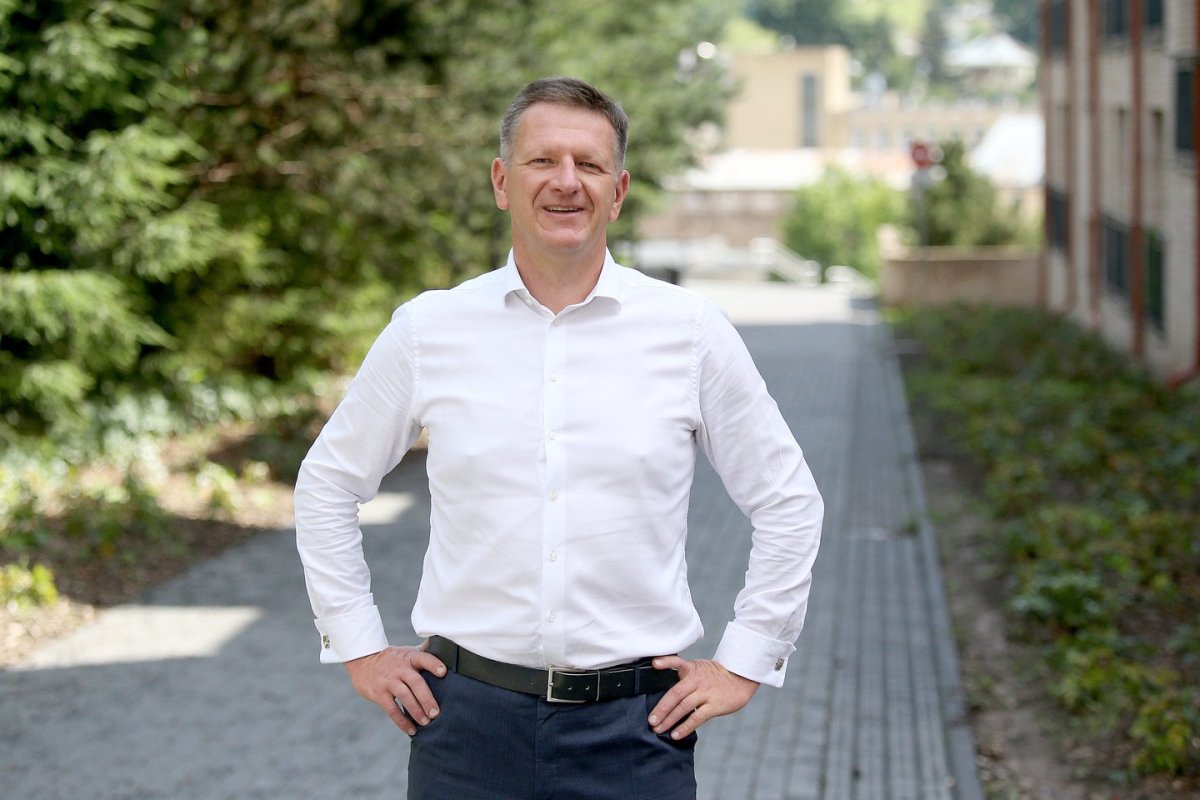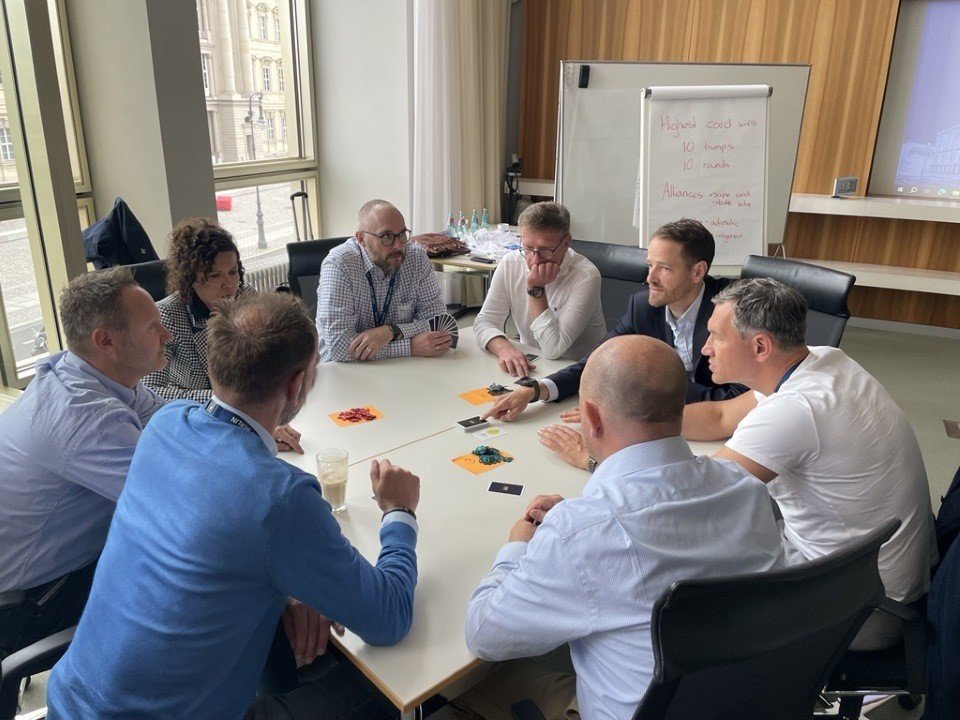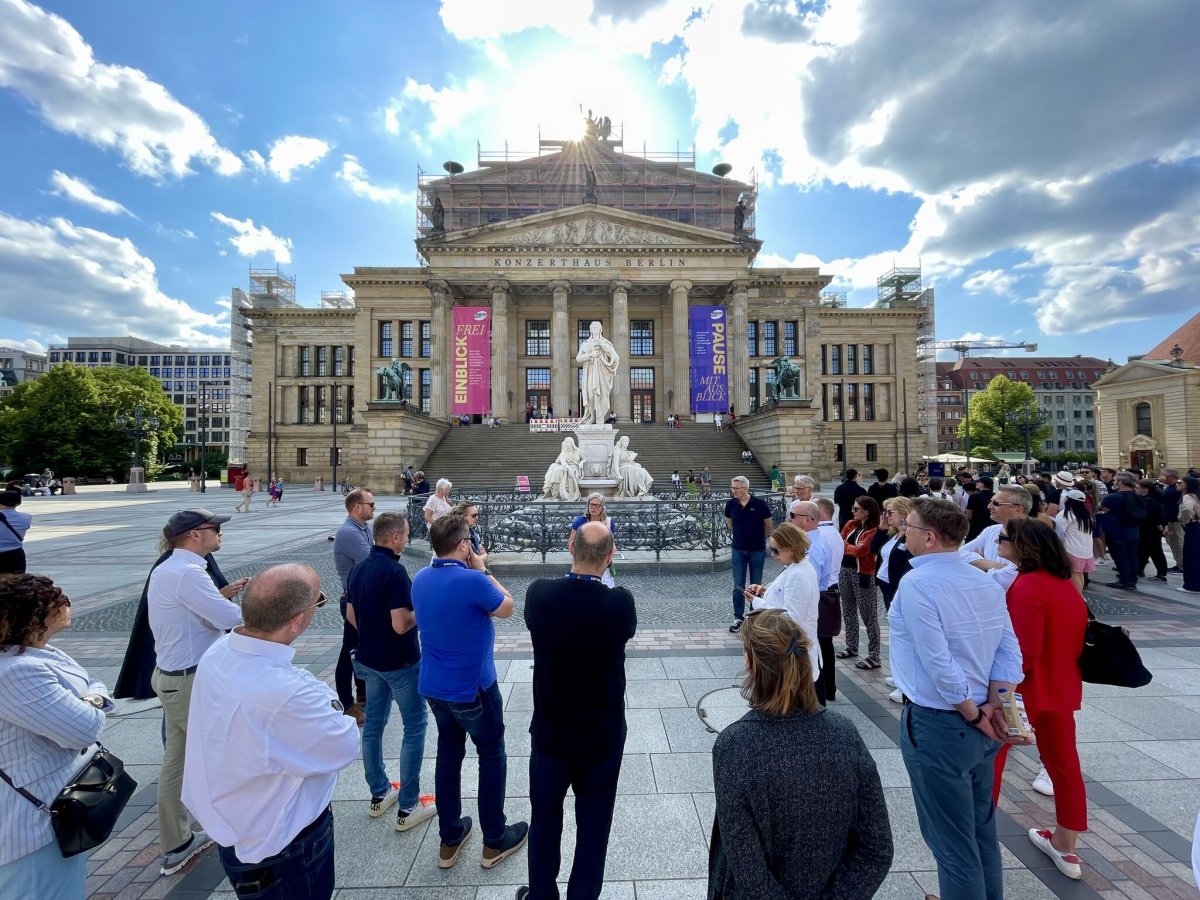Fifteen years on: The ETP’s lasting impact on leadership journeys

When Sigitas Žutautas joined the Executive Transition Program (ETP) at ESMT Berlin in 2008–2009, he was already on a steep career path. Steadily moving from unit manager to regional manager and eventually into a C-level role at DnB NORD bank (a subsidiary of NORD/LB), each step brought new responsibilities—and uncertainties.
Fifteen years later, he remains an active member of the ESMT global alumni network. In this interview, Sigitas shares key moments from the program, lessons he still applies today, and advice for leaders making the leap into general management.
Before you stepped into your first general management role, what felt most uncertain or most exciting about taking that step?
Leading a team and achieving results was both the most uncertain and the most exciting part of the transition.
My shift into general management was gradual. When I became a unit manager, I realized that I was now fully responsible for hiring, training, and sometimes restaffing the team. Corporate hiring and training procedures were available, but they were tools for me to use for the benefit of my team.
When I moved to managing a region of the bank, I felt uncertain about how I would lead a much larger team and deliver results in an extremely competitive and growing market. I clearly remember the cold winter day when I received the promotion confirmation. I went for a walk in a nearby park and despite the freezing air, I felt very hot from the excitement and the weight of the responsibility ahead.
When I was promoted to the C-level, the challenge shifted to earning and keeping the trust of my colleagues, while being able to understand and rationally challenge proposals from other board members. I joined the Executive Transition Program at ESMT Berlin shortly after stepping into this role as a newly appointed member of the Management Board at DnB NORD bank (a subsidiary of NORD/LB). The ETP helped me greatly: it consolidated my hands-on experience and complemented it with academic knowledge.
Is there a moment from the ETP experience – a session, idea, or conversation – that still comes to mind today? What made it memorable?
There are quite a few, indeed. One that stayed with me was a statement from a professor of accounting:
“There is no such thing as corporate social responsibility. However, there is a huge social responsibility for each corporate manager.”
I realized then that there is no way to hide behind a corporate body. It is me, as a manager, who makes the judgment calls and bears that responsibility.

Another memorable moment came from a session on negotiations. A chart showed that if one party pushes the other to their just-acceptable limits, any change in circumstances can make the agreement unacceptable—and the other party may then seek to terminate the contract or make life difficult. Compromise often means that both sides lose something, while consensus means agreeing for the common good.
And finally, there was a very human moment when a fellow participant—a general manager—had to leave immediately after an accident at their company. His genuine emotion of loss and sadness reminded me of the deep sense of responsibility leaders feel for their people.
Can you share a time when something from the ETP helped you navigate a real business challenge or decision?
There are quite a few cases but let me share one.
I was appointed to manage the National Opera and Ballet Theater of Lithuania—a role very different from banking, even though it was still a managerial position. The Theater employed around 600 artists and staff, was highly visible to the public, and relied on both public funding and ticket revenues. Its primary purpose was to create and promote world-class art, but financial and managerial constraints still apply.
I reached out to one of my ESMT professors and wrote a short letter, expecting a brief reply—maybe a few lines of guidance. Instead, I received a detailed and insightful response with many points to consider. That was a real ‘wow’ moment, and it reminded me of the incredible value of the ETP network. (It was Urs Mueller, if names matter.)
You’ve stayed connected with ESMT over the years – what’s kept the alumni network meaningful for you?
It is a truly global network that spans industries. Whenever I needed specific knowledge, whether in aviation, R&D, or innovation, practical advice was just one email away.
The ETP Salons are also something I value highly. These two-day sessions on very relevant topics keep the network fresh and provide great opportunities to reconnect with fellow alumni.
What advice would you offer to someone preparing to move from a functional role into a broader general management position?
- Get familiar with the topics your colleagues are working on—you will need to have an informed opinion on their areas as well.
- Have a strong backbone of values. You will need it when making tough decisions.
- Keep learning. The environment changes constantly, and you never know which quality, skill, or piece of knowledge will become most valuable at the right moment.
For leaders moving into broader general management roles or expanding their impact at the top level, the ETP offers insights and a network that continues to deliver value long after the program. Learn more about the Executive Transition Program at ESMT Berlin.
Download the ETP brochure

